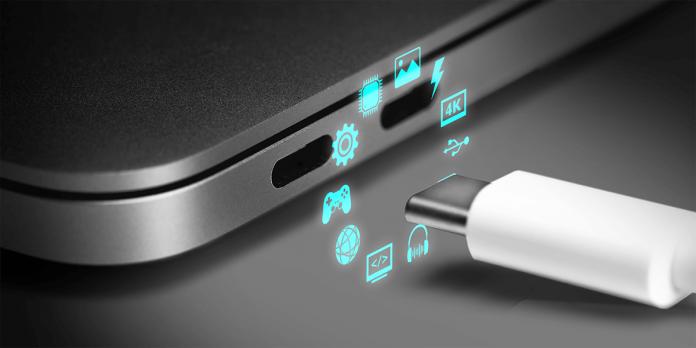The world is at a crossroads. Economies are struggling to recover from the pandemic. Inflation is spiralling. Russia is amassing troops on the Ukrainian border.
In these uncertain times, we can rest assured that the European Union is there, tackling the important issue: chargers for electronic devices.
The European Council has announced its support for Commission plans to introduce new rules to ensure consumers no longer need to buy a new charger with different devices. This means requiring smartphones, tablets, cameras, headphones, portable speakers and handheld videogame consoles to all use USB-C.
The Commission claims it is necessary to combat ‘e-waste and consumer inconvenience’.
But this will only have a negligible impact on waste. Charging cables generate 11,000 tonnes of the 2.3 billion tonnes of waste per year in the EU. In the unlikely event that people entirely stop throwing out old charging cables, total waste will decline by just 0.0004%.
Ironically, the Commission’s own impact assessment concluded that mandating a single charging port would have a minor negative environmental impact – because mandating the use of USB-C would require larger devices compared to the iPhone’s smaller Lightening connector, resulting in the use of more materials and higher greenhouse gas emissions.
The consumer point is perhaps more valid. It can be a minor inconvenience to find the right connector. But it’s not like this is the end of the world. It’s something that can be easily managed, with various low-cost multi-end cables or purchasing products with the same standard. Additionally, the Commission weirdly presumes that the cost of additional chargers is a largely superfluous expense rather than necessary for customers charging at different locations in their homes and workplace.
Even more strangely, the proposals would see the EU requiring manufacturers to not include a charger with devices by default. How reducing the product offering from manufacturers would help customer convenience is completely unclear. I, for one, look forward to a new charger when purchasing a new device, particularly considering the inevitable fraying of old cables. There is also concern that forcing customers to buy chargers separately would lead to more unsafe and counterfeit chargers reducing consumer safety.
In any case, most charger inconvenience comes from manufacturers changing standards over time. But this has ultimately benefited consumers. USB-C transfers data and chargers over 20 times faster than the previously common USB-A. If the EU had intervened a decade ago to mandate the USB-A, Europeans would have been disadvantaged today.
The Commission’s impact assessment warns that mandating USB-C charging ports ‘could constrain future innovation’. They consider this to be unlikely but in reality, there are a number of newer cable technologies in the pipeline that are faster and have new features like better waterproofing. A Copenhagen Economics study suggested that if standardisation delayed the introduction of a new charger by just three years it would result in a €1.5 billion loss to consumers.
The main complaint that has driven this proposal is Apple’s continued use of Lightening connectors for mobile devices. But Apple’s divergence from other manufactures is not simply to inconvenience their customers. Rather, the Lightening connector has advantages for mobile devices including durability and thinness, which means slimmer devices for consumers. For existing Lightening users the transition to USB-C will be quite inconvenient, particularly for those of us who have existing accessories and headphones designed for their Apple device.
If Apple’s consumers were truly concerned about the lack of USB-C on their mobile devices they would and could purchase other products. Yet Apple remains the most valuable company in the world. Perhaps they know better about what is appropriate for their devices and customers than bureaucrats in Brussels.
This debate over charger standards could ultimately prove purely academic. The future of devices is likely to be wireless, as the advent of Bluetooth headphones and wireless charging is already demonstrating. It’s more likely than not that ports are entirely removed from many devices in the future.
The single charger proposals speak to a deeper issue with the EU’s mindset. This is superfluous intervention, built on spurious grounds, that will only serve to discourage innovation and make life harder for companies and consumers. It is precisely this type of activity that makes Europe a less hospitable place for entrepreneurs. The EU should stick to serious problems, not waste its time with non-issues and bad ideas.







